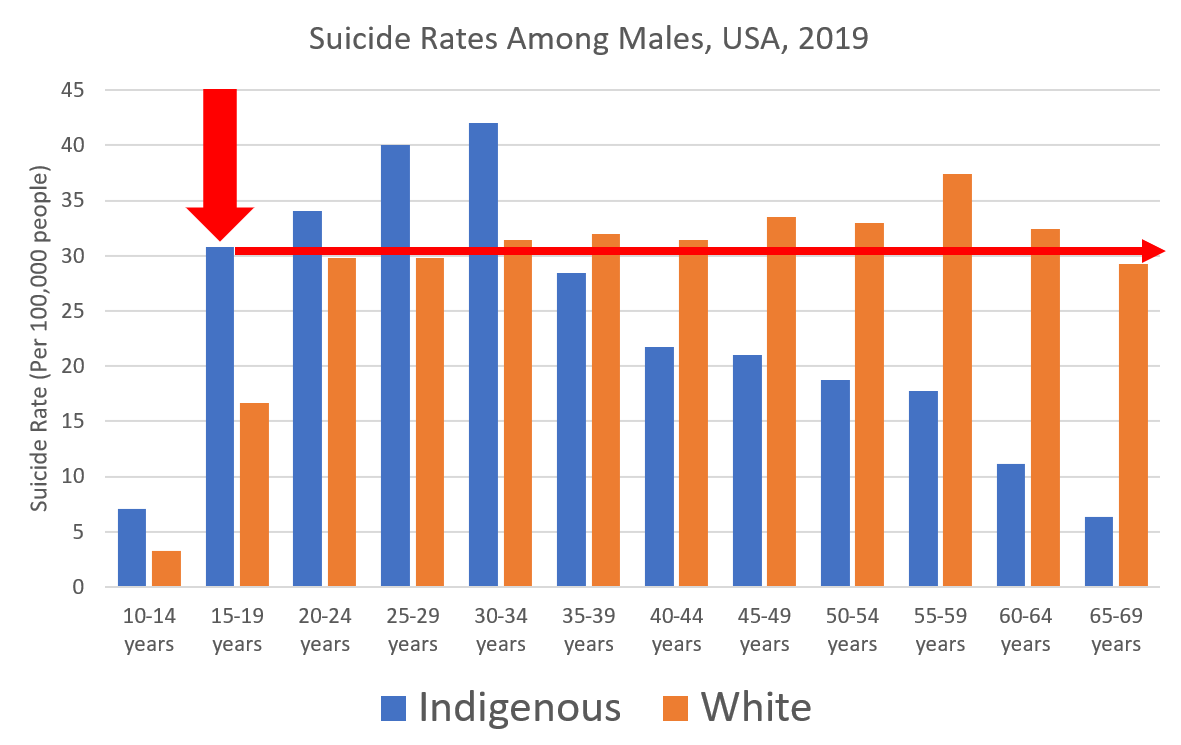
Pro Tip Thread: "exceptions to the rule"
Being a caring human being should come before "requirements", and though guidelines are largely helpful, one need not slavishly follow them as they can harm.
If exceptions required, document the reasoning.
This is GOOD care.
EXAMPLE:
/1
Being a caring human being should come before "requirements", and though guidelines are largely helpful, one need not slavishly follow them as they can harm.
If exceptions required, document the reasoning.
This is GOOD care.
EXAMPLE:
/1
Content warning: suicidal thinking, depression
CASE (not real) Example:
An adolescent teen, "Javier", who I am seeing in the emergency department for depression.
As I get to know them, I start asking them why they're here, in the ER. What's gotten so bad.
/2
CASE (not real) Example:
An adolescent teen, "Javier", who I am seeing in the emergency department for depression.
As I get to know them, I start asking them why they're here, in the ER. What's gotten so bad.
/2
Javier:
"I was sent here by my counsellor because I told her I was having suicidal thinking. I told her because she asked but its not like I was going to do it... I just... sometimes I think about it. Soon as I said it, she ended the session and called my mom to take me to ER.
/3
"I was sent here by my counsellor because I told her I was having suicidal thinking. I told her because she asked but its not like I was going to do it... I just... sometimes I think about it. Soon as I said it, she ended the session and called my mom to take me to ER.
/3
Me:
"What impact did her reaction have on you?"
Javier:
"Well it sure as shit told me not to ever be honest with her again. I mean, she asked. I thought we could talk a little bit about it, because sometimes I wonder about it. It's not that bad I was just hoping to talk."
/4
"What impact did her reaction have on you?"
Javier:
"Well it sure as shit told me not to ever be honest with her again. I mean, she asked. I thought we could talk a little bit about it, because sometimes I wonder about it. It's not that bad I was just hoping to talk."
/4
Me:
"It would be easier to just tell people you're OK even when you're not, wouldn't it?"
Javier:
"Exactly. I mean, I AM OK for now. There were other things I wanted to talk about. I would never have been honest if I knew she would end the conversation."
/5
"It would be easier to just tell people you're OK even when you're not, wouldn't it?"
Javier:
"Exactly. I mean, I AM OK for now. There were other things I wanted to talk about. I would never have been honest if I knew she would end the conversation."
/5
Me:
"What other things were on your mind?"
Javier:
"I'm really upset about my mom today, she really laid into me and I didn't think it was fair. Sometimes I think she wishes I wasn't around."
/6
"What other things were on your mind?"
Javier:
"I'm really upset about my mom today, she really laid into me and I didn't think it was fair. Sometimes I think she wishes I wasn't around."
/6
Me:
"Oh we have an opportunity. If you'd like, we could talk about that, and I could also understand that by you saying you're 'OK', that what you mean is that for now you feel safe but you would like someone to talk to about suicidal thoughts at some point, without judgment."
/7
"Oh we have an opportunity. If you'd like, we could talk about that, and I could also understand that by you saying you're 'OK', that what you mean is that for now you feel safe but you would like someone to talk to about suicidal thoughts at some point, without judgment."
/7
Note:
I didn't ask the performative "Are you suicidal?" to my patient who WAS CLEARLY in no mood to answer that question.
A bad clinician would say: "I have to ask because its a requirement: are you suicidal Javier?"
/8
I didn't ask the performative "Are you suicidal?" to my patient who WAS CLEARLY in no mood to answer that question.
A bad clinician would say: "I have to ask because its a requirement: are you suicidal Javier?"
/8
A good clinician would INTEGRATE THE KNOWLEDGE.
In documentation: "Javier expressed that he was frustrated that his talk about suicidal thinking immediately dominated something that was more important to him, namely, resolving the issue with his mom."
/9
In documentation: "Javier expressed that he was frustrated that his talk about suicidal thinking immediately dominated something that was more important to him, namely, resolving the issue with his mom."
/9
In documentation: "To establish safety and good rapport, I checked in with Javier to use his language of 'being OK for now' but left the door open for future conversation. It was clear that he was frustrated about the focus on suicide when it wasn't his priority."
/10
/10
In documentation: "We also have to reconcile the knowledge that the only reason I was talking to him is because he was expressing himself honestly. He clearly expressed that he felt inclined now to lie about suicidal thinking and we should mitigate against that."
/11
/11
"With the interview we had & how engaged and insightful I found Javier, suicide screening in this situation was to me useless and unnecessarily provocative. I believe that addressing his family issues and sorting out a temporary strategy for peace at home was more important."
/12
/12
If you are doing things by rote memorization without genuineness and interaction, you will get rote responses without genuineness and interaction. This is the failure of checklists, "magic word" requirements, and forgetting humans mostly like to feel heard and understood.
/13
/13
So, master being a good clinician. Follow guidelines. Use good practice. But don't miss the forest for the trees. It is far more important to HELP a patient with mental health concerns, than to document that you asked a certain question.
• • •
Missing some Tweet in this thread? You can try to
force a refresh



















